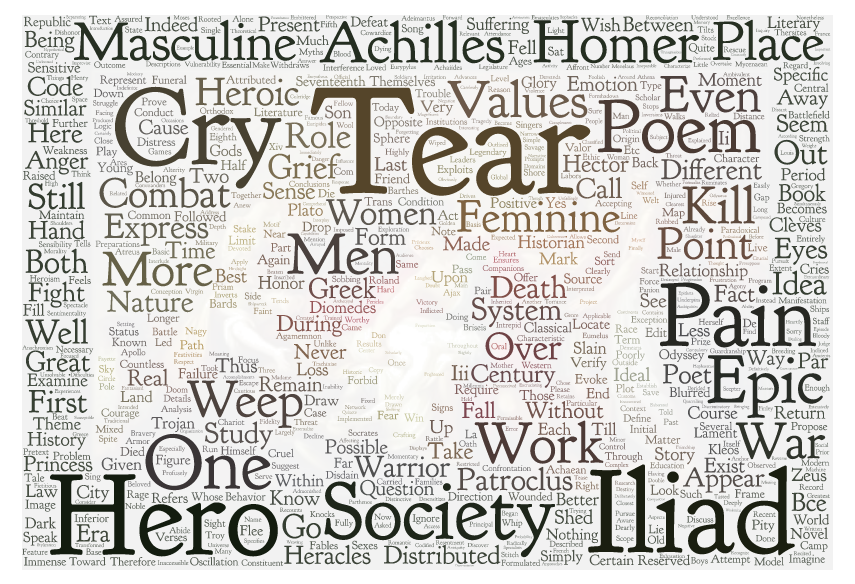In an epic text, how were poets able to represent emotion? How can we understand today their way of speaking? Did Achilles “copy” the behavior of warriors from those distant times? Or might it be the reverse: did the epic influence certain real behaviors?
Our Book Club selection for April is taken from Hélène Monsacré: The Tears of Achilles, available online at CHS. This book, originally published in French as Les larmes d’Achille: Héros, femme et souffrance chez Homère, is newly available from the Hellenic Studies Series in the translation into English by Nicholas J. Snead, with an introduction by Richard P. Martin.
Achilles—warrior and hero—by the protocols of Western culture, should never cry. And yet Homeric epic is full of his tears and those of his companions at Troy. This path-blazing study by Hélène Monsacré shows how later ideals of stoically inexpressive manhood run contrary to the poetic vision presented in the Iliad and Odyssey. The epic protagonists, as larger-than-life figures who transcend gender categories, are precisely the men most likely to weep.
Monsacré pursues the paradox of the tearful fighter through a series of lucid and detailed close readings, and examines all aspects of the interactions between men and women in the Homeric poems. Her illuminating analysis, first published in French in 1984, remains bold, fresh, and compelling for anyone touched—like Achilles—by a world of grief.
We will all read the “Introduction“, and III.1 “Crying in the Heroic Space of the Iliad“, and you can choose which additional chapters to read (or the whole book, if you wish—in print, the book is 198 pages so it’s not too long).
The discussion will start and continue in the forum, here, and we will meet via Google Hangout on Tuesday, April 24 at 11:00 a.m. EDT.
Happy readings!
